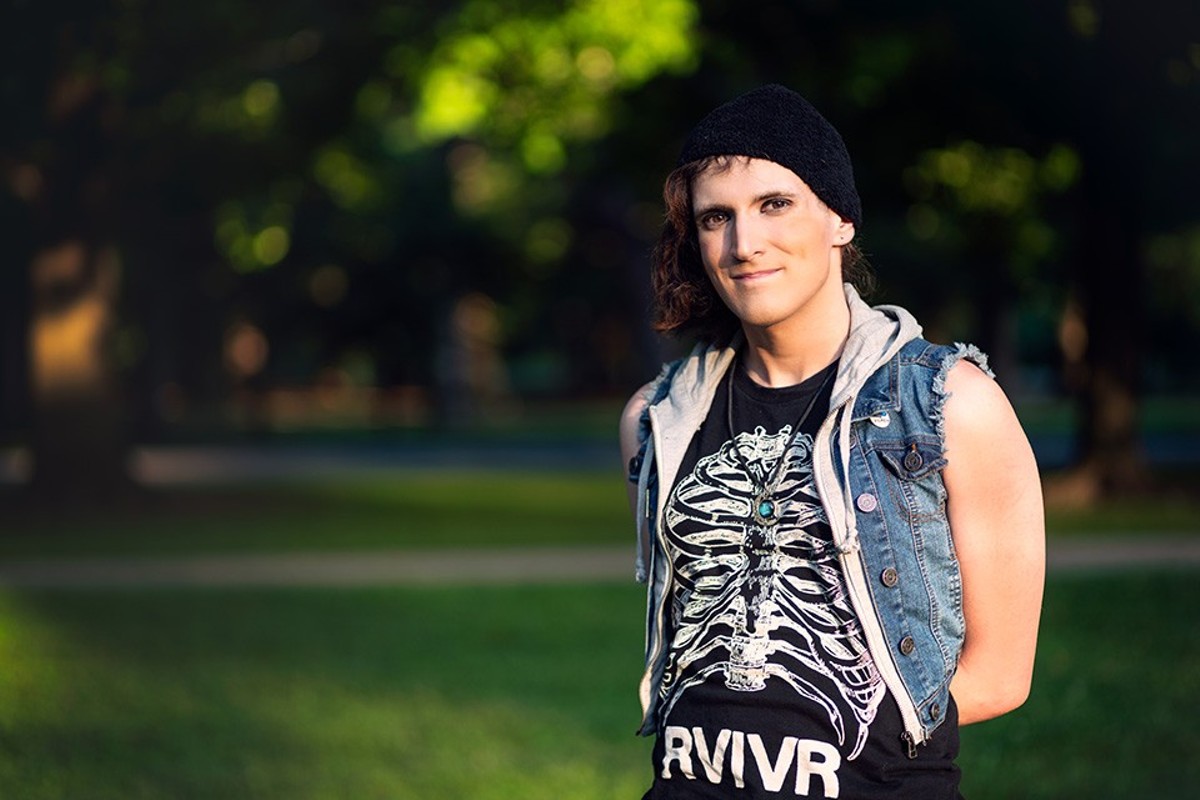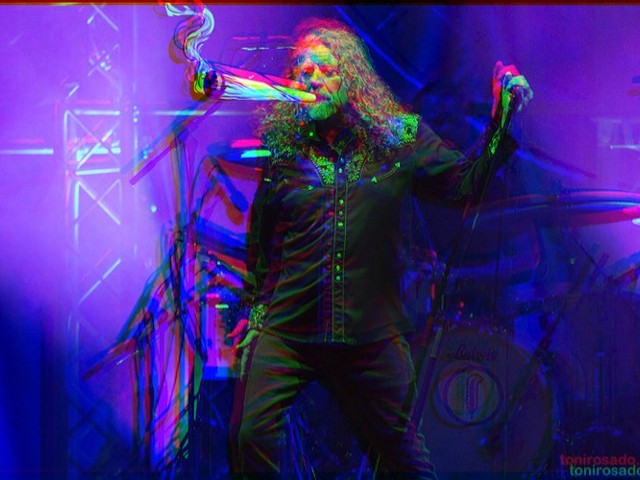Growing up in a conservative household in Belleville, Illinois, Amy Elizabeth Quinn didn't have a lot of avenues to explore her burgeoning questions about gender identity.
"I started having identity questions around the age of 16, but I was raised in a super Catholic home, so [I had] all these questions of 'what's my orientation? What's my gender identity?'" Quinn, now 24, says. "I was raised to believe if it wasn't cis/het male, it was a sin and I was gonna be going to hell, so I tried to repress that for so long."
"Everything feminine in my life, I tried to push away," she continues. "I started going by the most masculine form of my dead name, and I just tried to push out every quote/unquote 'impure thought' of femininity that came to me."
That repression only lasted so long. In February of last year, Quinn says, she "went through this moment of rediscovery: Life's too short to be unhappy; I need to figure out who I am. I think I came out to myself completely in March of 2017." She began hormone therapy in October.
Since then, Quinn has been living as a trans woman and, over the past year, has added a new facet to her identity as well: that of a singer-songwriter who performs under the name Dead Pilgrim. She has released two six-song EPs in the last few months — Lost in Transition came out in May and a self-titled released dropped in June. It's been a flurry of activity for an artist who has played in bands, but previously never served as lead singer and focal point.
The EPs are different enough in presentation; Transition rides on a garage-punk energy, while Quinn's self-titled release starts with spare acoustic guitar-driven instrumentation but gradually adds piano, synth and glockenspiel ornamentation. Quinn considered releasing the songs as a single CD but sees them as distinct documents, both in production and storytelling.
"I feel like they had different meanings," she says. "They had similarities and they really could have been on a full CD, but Lost in Transition was definitely a progression of my actual transition, and it was very thematic. It was an overarching tale about different things I was feeling throughout my transition, whereas the self-titled one was songs I had written in the past, and they just taking on new meaning as I've grown, since I wrote them."
The Dead Pilgrim EP begins with "Cynical Depression" — a joke, Quinn says, about her own diagnosis with clinical depression. The song, though, is anything but cynical: On it, she sings over a raggedy guitar pattern that recalls a little of Big Star's "Thirteen" as bells and handclaps fill in the space. "It's time you let your light shine through," Quinn sings. "It might surprise even you."
And while Quinn doesn't claim to have all the answers, she hopes these songs can serve as a guidepost for others — trans, queer or otherwise.
"Express your identity: If you're gay, straight, trans, non-binary, all of that — be who you are, as long as you're not hurting anyone else or being an asshole," Quinn says. "Let that light shine; don't let anyone try to block it out."
As most of the songs on these EPs detail some element of the trans experience, either overtly or indirectly, Quinn has taken her outreach a step further: all sales of her music will be donated to the Metro Trans Umbrella Group.
"They do far more for the community than I ever could and they need the money," she says. "I don't."
Quinn chose the name Dead Pilgrim as a tribute to her two favorite comic book series — Deadpool and Scott Pilgrim: "I like these; these make me happy — why not base a band off of stuff that makes me happy?" The name, though, has taken on an ulterior meaning.
"The genre of music I am playing is very heavily full of white, straight men," Quinn says of her indie and punk roots. "I want to bring a death to that: I want queer people to be involved; I want people of color to be involved; I want women to be involved; I want everyone to feel comfortable in this space and not just be a white boy's club."
Her band name wasn't the only moniker she had to settle on. After beginning her transition, Quinn had settled on another name, but a moment of truth with her mother led her to settle on being called Amy Elizabeth Quinn.
"It eventually came to a breakdown of me, in tears, telling my mom, 'This is who I am; it's not gonna change,'" Quinn recalls. "After a few weeks of acceptance, she told me that she would have named me Amy Elizabeth when I was born, so that's the name I have ultimately chosen to go with."
Quinn saw it as a moment of growth, a little crack in her conservative upbringing. Of her mother, she says, "I can definitely see an effort of her being supportive and trying to understand."






